Reading time: 5 mins
.jpeg)
At a glance
- MDWs need specialised training to provide quality care for elderly family members.
- Training courses and grants are available to equip them with essential caregiving skills.
- Look out for the well-being of MDWs in eldercare roles.
As Singapore’s population ages, many of us find ourselves asking if we should hire a migrant domestic worker (MDW) to help care for our elderly loved ones at home. Before you do this, take a minute to consider the following.
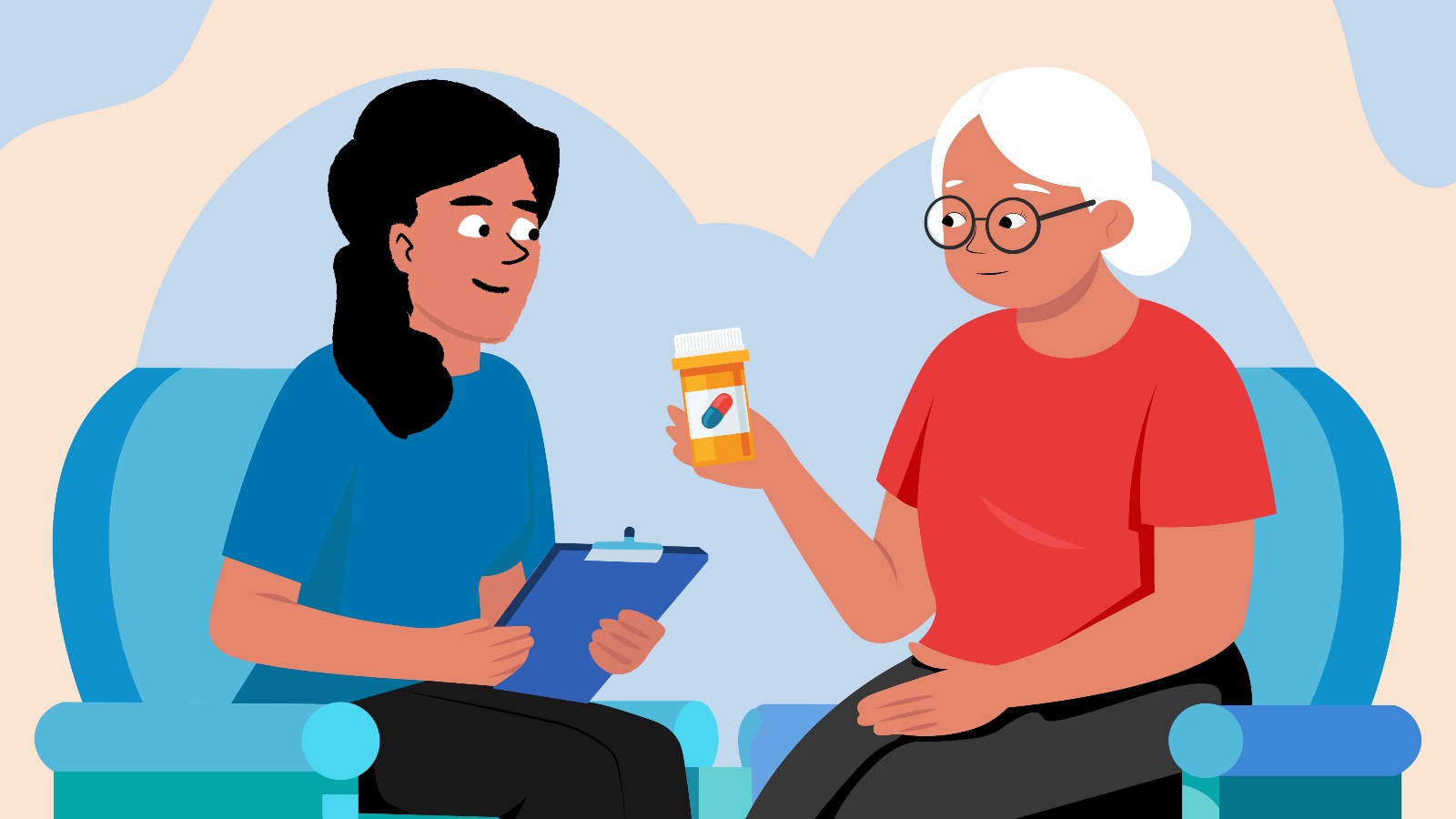
Caregiving for seniors requires specialised skills
While you can expect your MDW to handle household chores on her own after guidance, caregiving for seniors is more complex.
She needs additional skills, like how to help an elderly person move around, or transfer this person from the bed to a wheelchair. She might also need to know how to change adult diapers, or assist a senior in taking medication. In fact, interpersonal and communication skills may prove essential since the elderly may not speak basic English, find it hard to adjust to how an MDW speaks and may even exhibit mood swings due to his or her physical condition.
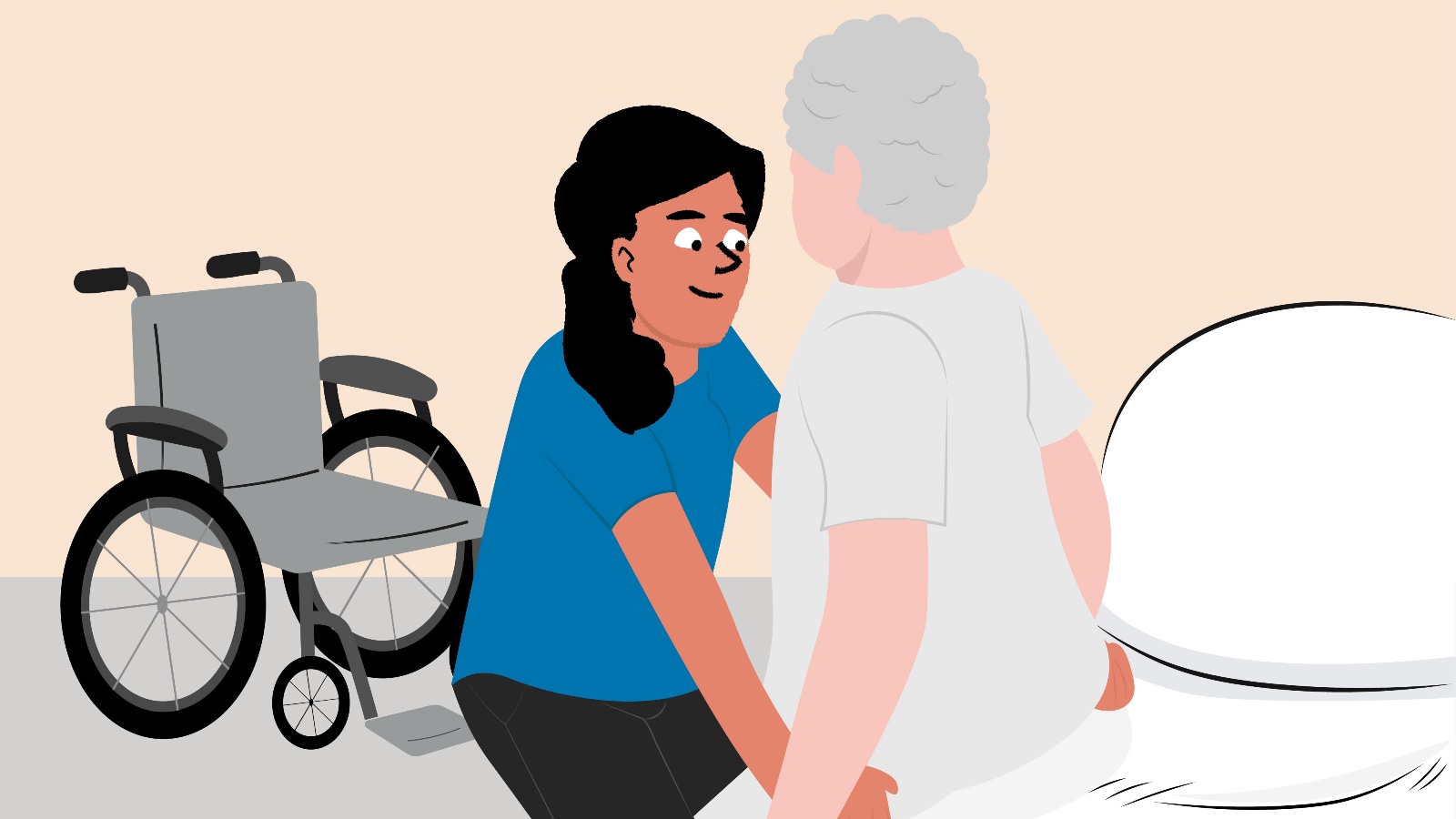
Consider sending your MDW for specialised training
To ensure that your MDW is equipped to handle these and provide the best possible care for your elderly loved one, it may be beneficial to send your MDW for specialised training. This training will help your MDW:
- Ensure the safety and well-being of the elder being cared for.
- Learn how to handle caregiving-related tasks.
- Understand and manage age-related conditions and behaviours.
- Minimise the risk of accidents, injuries, and medical complications.
- Gain the ability and confidence to provide good quality of care.
What your helper will learn
That said, what exactly will your MDW learn at training sessions? The Salvation Army Peacehaven Jade Circle Acaredemy shares some of the skills she could acquire.
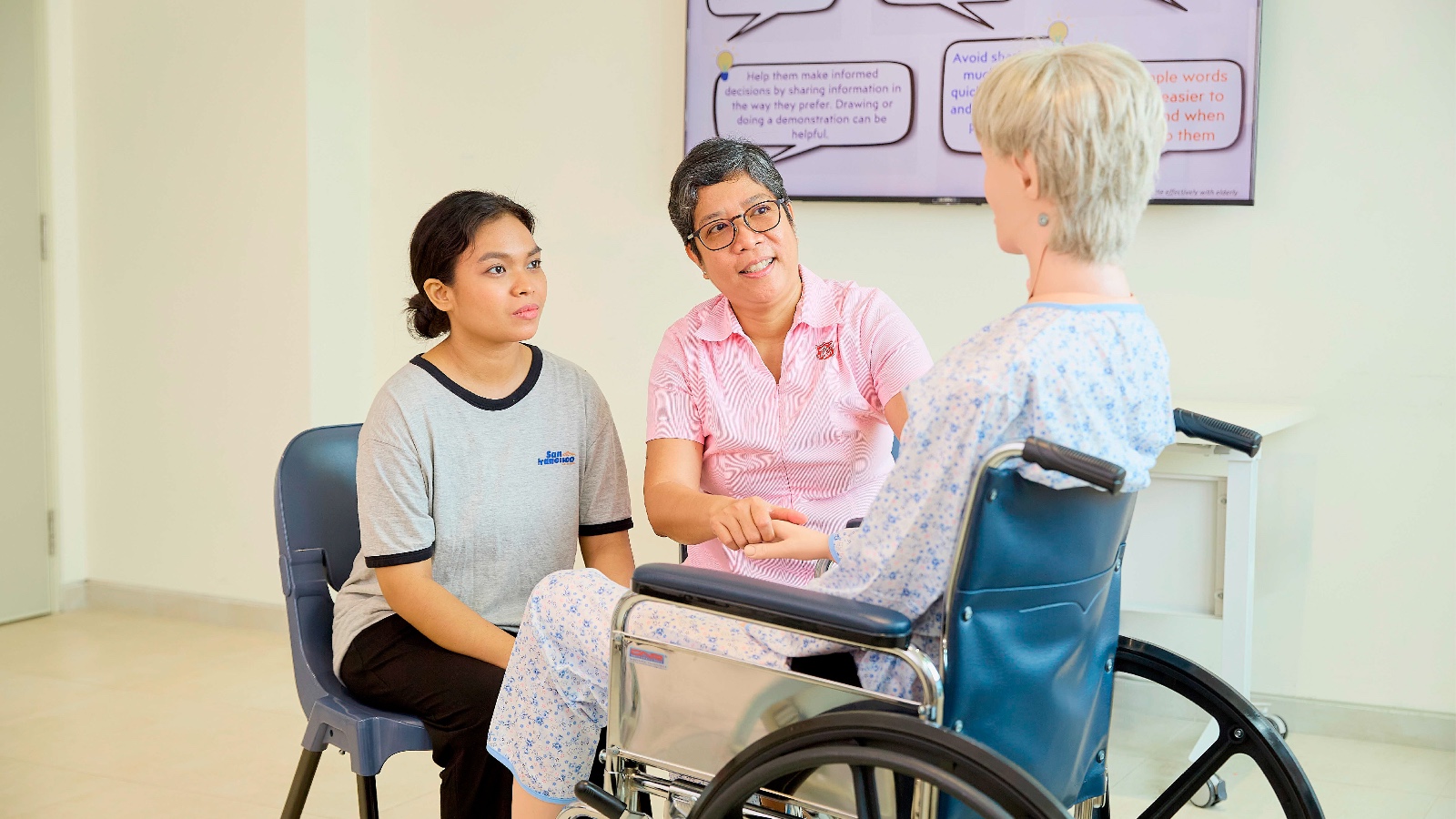
Practical communication
She will learn how to speak to seniors or those with dementia.
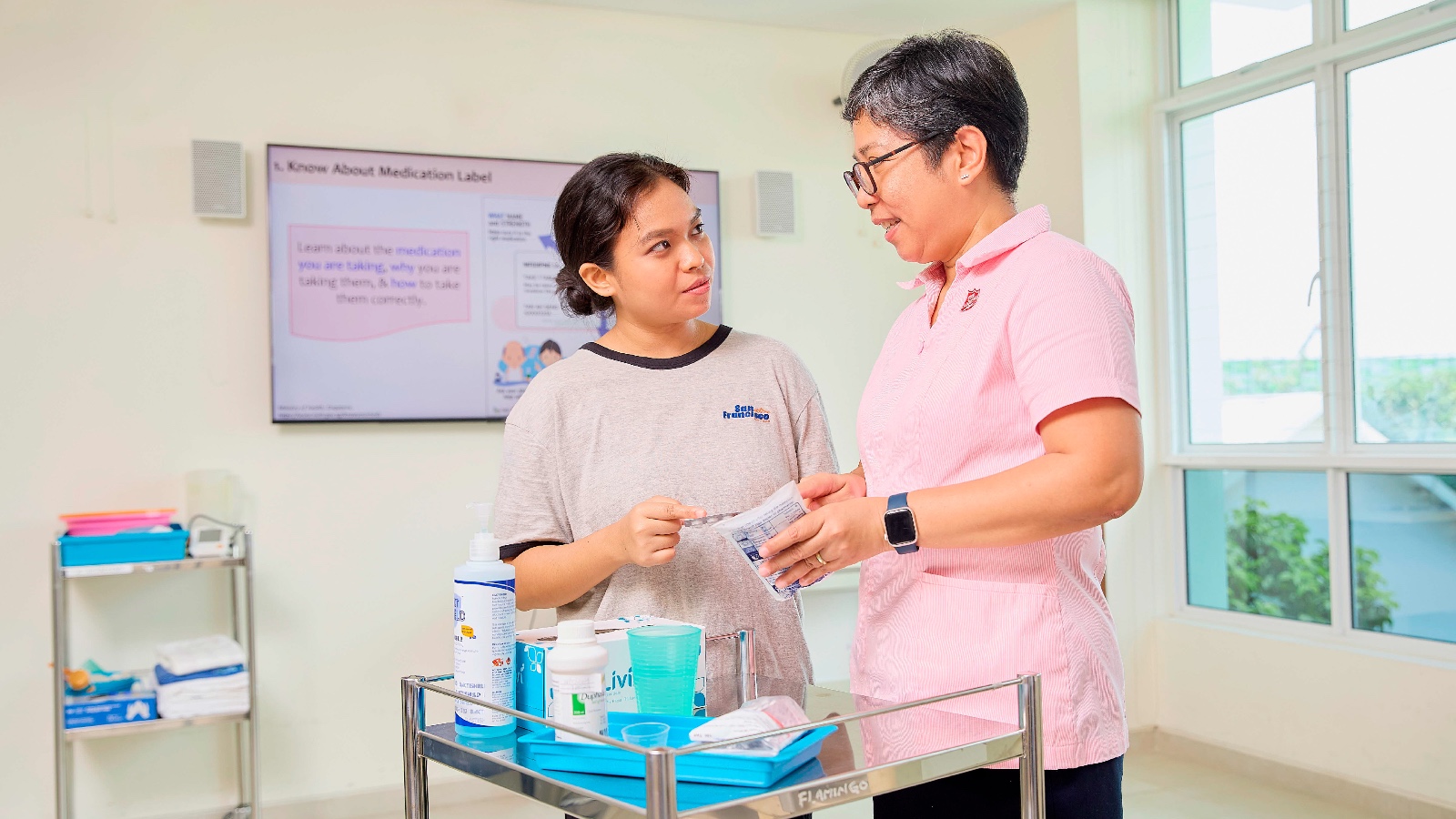
Helping seniors take medication
Through a practical session, she will learn how to help elderly persons take the right medicines.
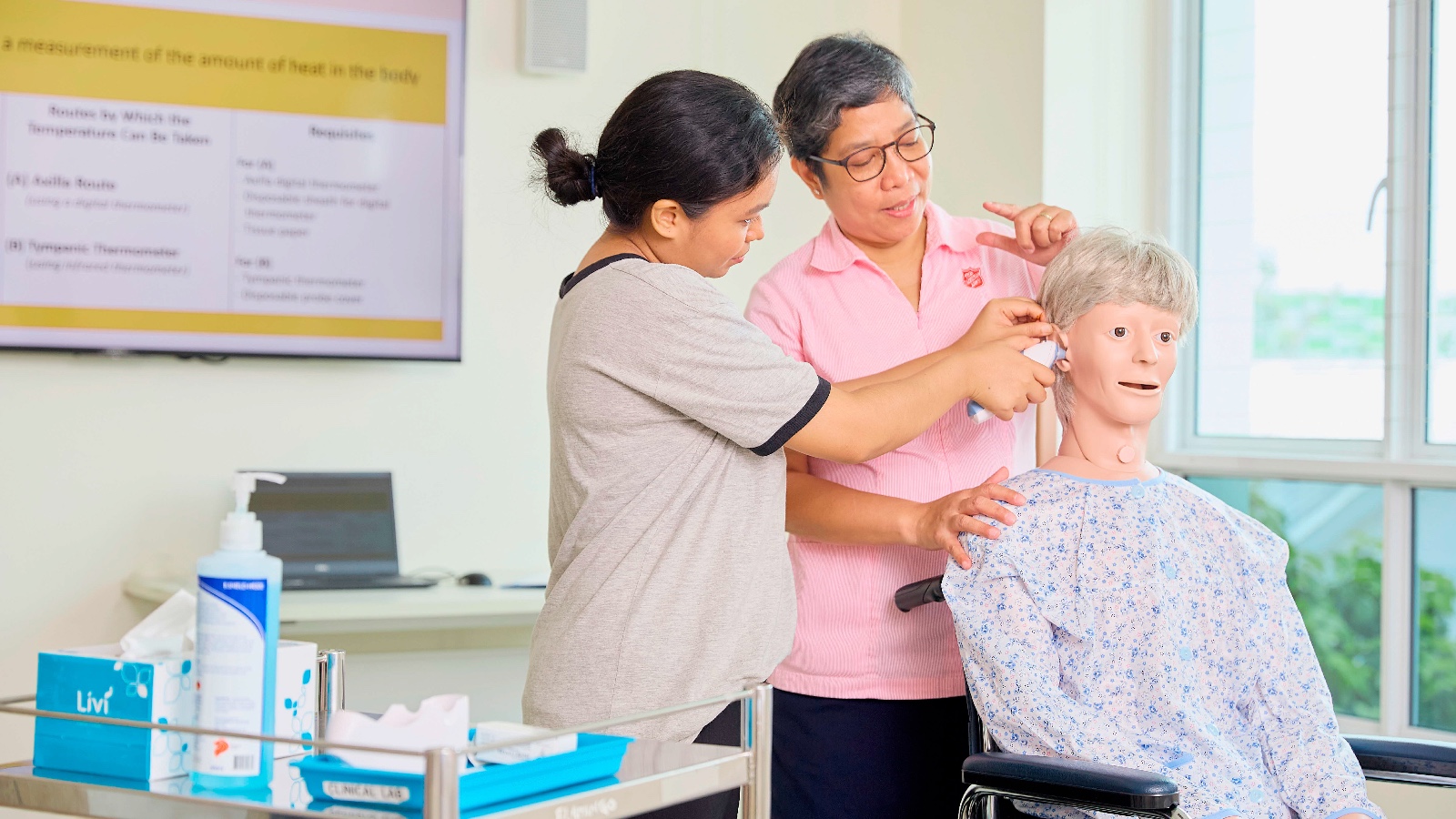
Monitoring vital signs
She will learn how to accurately measure an elderly person’s temperature, pulse and respiration rate.
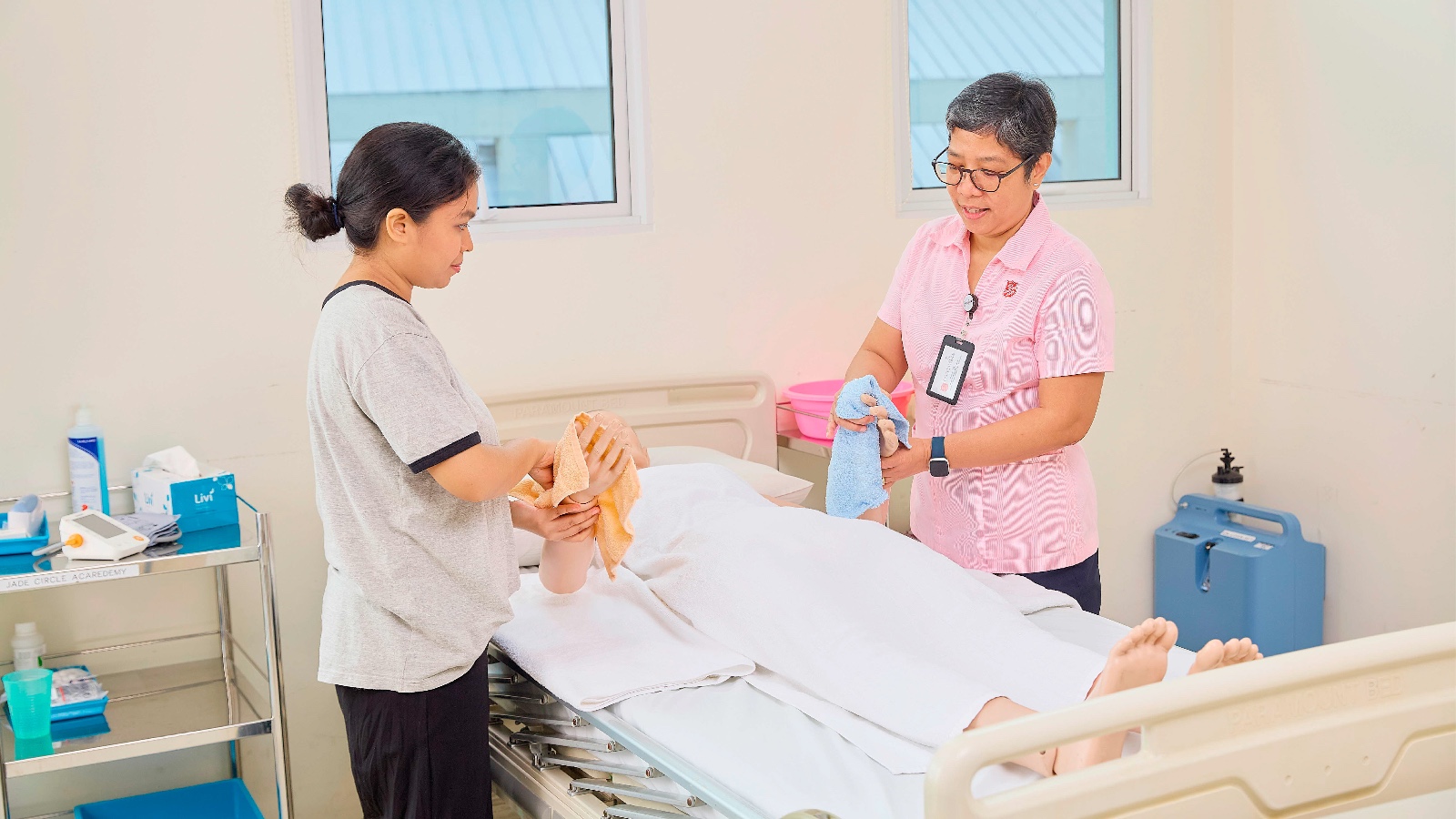
Maintaining hygiene and comfort
She will learn how to feed an elderly person, how to assist during showers and how to bathe-in-bed.
.jpeg)
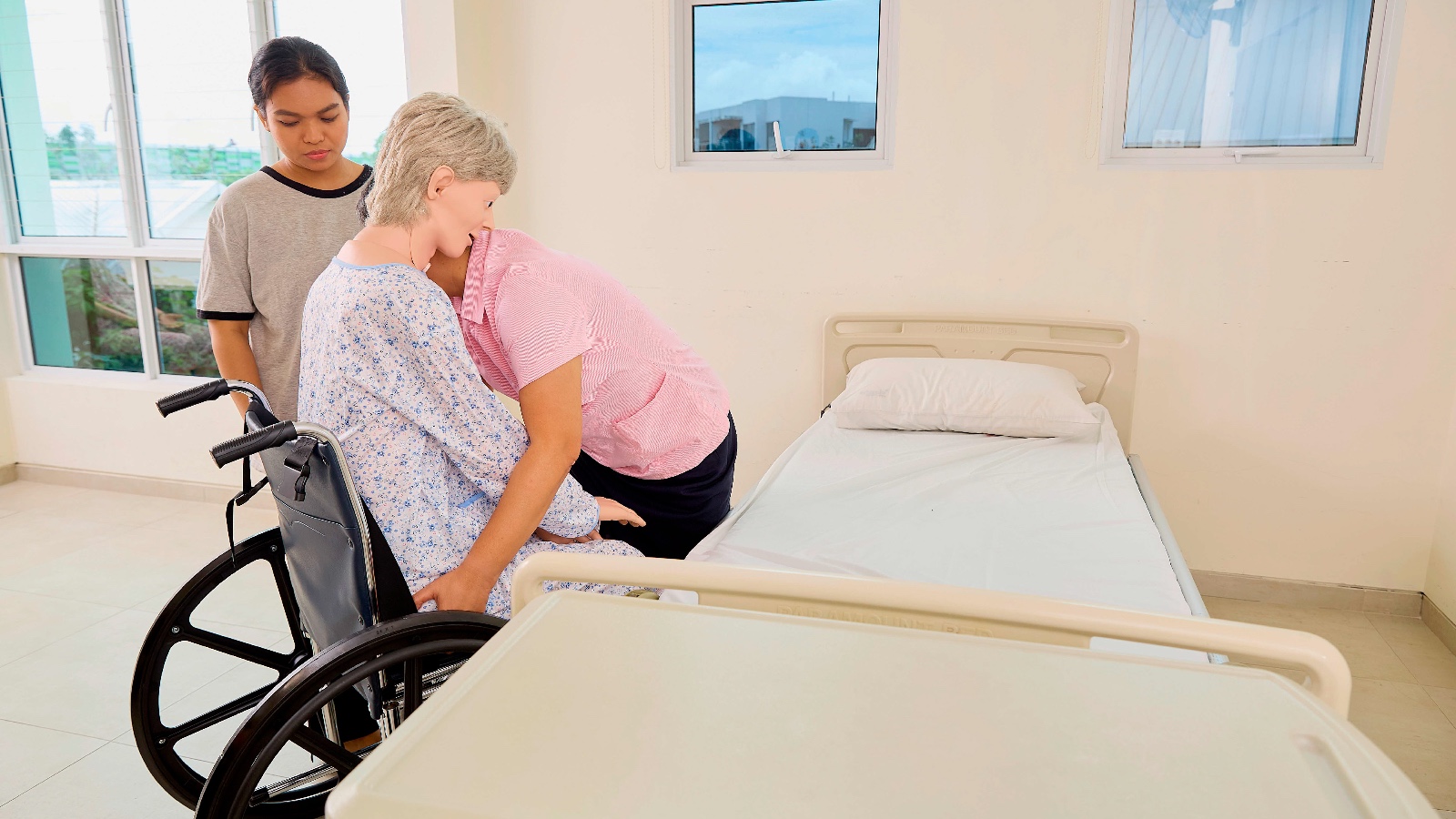
Moving a senior
She will learn how to transfer an elderly person between the bed and chair or in and out of a wheelchair, and how to help one stand and sit.
These are just some of what your helper could learn during her training, so do find out more details from the course providers.
Grants
To make such training more affordable, the Agency for Integrated Care (AIC) offers the Caregivers Training Grant, which lets caregivers (including MDWs) attend approved courses to better care for household members.
Have a look at a catalogue of courses eligible for this grant.
Important factors to consider
If you decide to have an MDW perform caregiving duties for an elderly loved one, know that she has to be physically and mentally prepared too. Apart from ensuring that she has the physical strength for her duties, do check that she is acceptable with the arrangement.
If she’s an existing MDW, discuss with her to see if she is comfortable with the new duties as well as the need to undergo training.
On the other hand, if you’re hiring a new MDW for these duties, go through her biodata and employment history and look for previous experience in caring for elders. You can
ask your employment agency for these if you’re using one. It’s also crucial to
tell candidates about your needs during the interview. Your MDW needs to know what to expect, so don’t just start her on caregiving duties and expect her to be able to adapt.
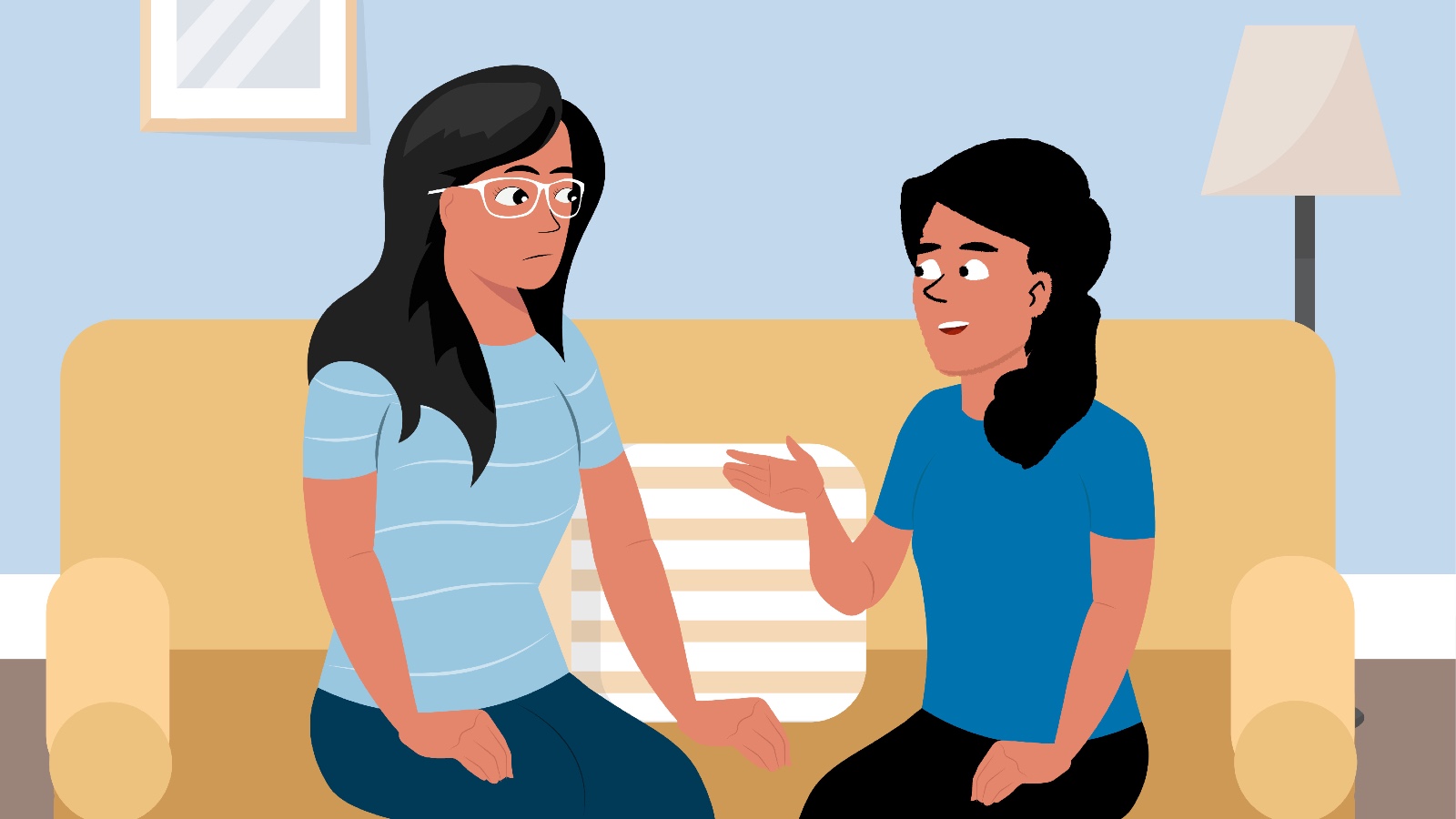
The well-being of caregivers is important too
Constant caregiving for the elderly could be stressful, so offer a listening ear to your MDW if you can, and refer her to helplines if she needs someone else to talk to:
Allow her to take breaks between her duties and ensure she gets adequate rest so she can stay focused on providing caregiving. During her rest days, you can also consider tapping on respite care services to help you care for elderly loved ones. Contact AIC at 1800-650-6060 for more information.
Also look out for signs of stress and burnout in your helper to ensure that she can do her best.
In conclusion, when hiring an MDW to care for seniors, it's crucial to invest in training. This will go a long way in ensuring that your MDW will become a valuable partner in providing quality care for your elderly family member.